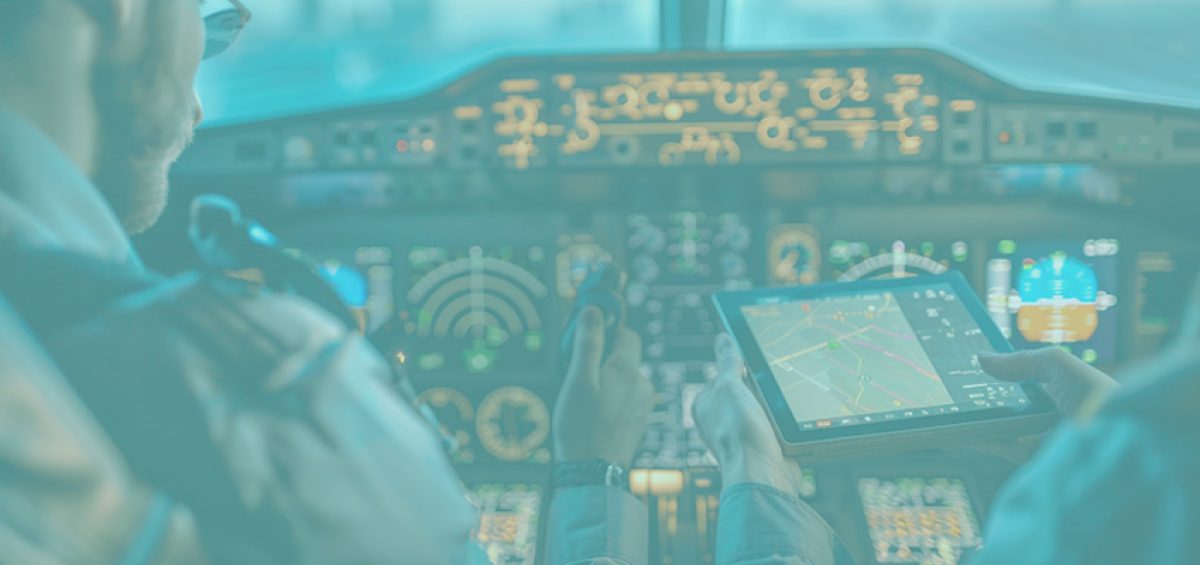The aviation industry is evolving rapidly, and one of the key drivers of this transformation is the advent of Electronic Flight Bags (EFBs). These digital devices have revolutionized the way flight information is managed and shared, breaking down traditional barriers and fostering a more collaborative and efficient environment. This blog post explores the transformative potential of EFBs, their benefits, and the future of data sharing in aviation.
The Rise of Electronic Flight Bags
According to Polaris Market Research, the global electronic flight bag market was valued at USD 2.44 billion in 2021 and is expected to grow at a CAGR of 6.6% during the forecast period. EFBs store a wide range of flight-related information, including flight logs, airport information, operational manuals, aeronautical charts, and route information. They also provide pilots with real-time data, enhancing their ability to operate aircraft and fleets more efficiently.
Breaking Down Traditional Barriers
In the dynamic landscape of aviation, collaborative interactions among partners are crucial. However, many still rely on outdated methods such as manual data sharing or point-to-point integrations, creating “data silos.” Establishing an efficient and secure data exchange ecosystem is essential to streamline processes, ensure accuracy, and foster collaboration in flight operations management.
Real-Time Data and Reliable Flight Operations
EFBs provide quick access to a variety of information and tools that help pilots operate their aircraft more efficiently. They offer real-time data exchange for critical information such as flight plans, weather reports, and navigation charts. Customized operational data reports give access to flight planning data during and after flights, enhancing operational efficiency and safety.
The Technological Path to Eco-Friendly Skies
Sustainability is a growing concern in aviation. Digital technologies like EFBs play a pivotal role in reducing the environmental footprint of flights. Advanced algorithms and data analytics facilitate smarter, more efficient flight planning, significantly curtailing fuel consumption. This shift towards greener skies is a testament to the aviation industry’s commitment to achieving net-zero emissions by 2050.
Benefits of Electronic Flight Bags
- Cost Savings: EFBs reduce the need for paper-based materials, cutting printing and distribution costs. Digital documents are easier to update, eliminating the expenses associated with reprinting.
- Weight Reduction: Transitioning from paper to digital materials reduces the weight of aircraft, contributing to lower fuel consumption and significant cost savings over time.
- Increased Efficiency: EFBs provide an intuitive interface, enabling quick access to essential information during pre-flight preparations, reducing preparation time.
- Improved Safety: Real-time access to critical data such as weather reports and NOTAMs allows pilots to make informed decisions, enhancing flight safety.
- Enhanced Communication: EFBs facilitate seamless communication between pilots, ground staff, and crew members, improving coordination and efficiency.
- Streamlined Processes: Automation of calculations such as weight and balance, fuel planning, and performance data saves time and minimizes human error.
Future Outlook with Open Data Sources
The future of aviation lies in collaborative efforts among all stakeholders. Overcoming data silos and inefficiencies requires close cooperation and the embrace of new technologies. By leveraging the power of data exchange, the aviation industry can optimize operations, enhance safety, and increase efficiency. A culture of collaboration and open communication will pave the way for an innovative and interconnected future.
Conclusion
Electronic Flight Bags are transforming the aviation industry by unlocking data potential and fostering a more efficient, safe, and sustainable environment. As airlines continue to embrace digital technologies, the possibilities for innovation and improvement are limitless. The journey towards a more connected and eco-friendly aviation industry is just beginning, and EFBs are at the forefront of this exciting transformation.







